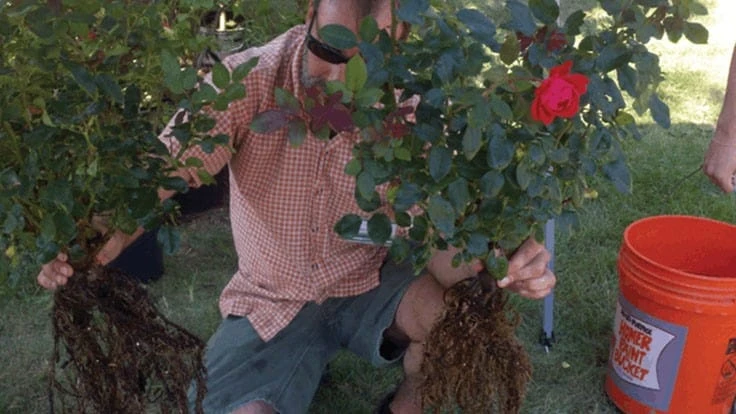

Mycorrhizal fungi and other biological controls all suffer from the same disadvantage. Many people, even those with experience in the horticulture industry, are hesitant to use them because they don’t know how they work.
Manny Dutra is the owner of Horticultural Professionals, a supplier of mycorrhizal fungi, biological controls, beneficial bacteria, biochar and more. He’s based in Vermont, but sells to clients all over the U.S. He has more than 200 vendors, but MycoApply inoculants by Mycorrhizal Applications is his best-selling line.
Dutra sells MycoApply inoculant to nurseries, greenhouses and landscapers, and he sells a lot of it. He says it’s been so successful because it is the best product in the field. It has the highest concentration of active ingredients of mycorrhizal products, which he says is the most important number to check.
“If you’re looking at that, you can understand that it’s the biggest bang for your buck,” he says. “But that’s the whole thing about these mycorrhizal fungi. People are really not familiar with them. But once they understand, it’s really a no brainer to use when you do the mathematics of it all.”
Mycorrhizal fungi is what Dutra calls a “technical sale.” So he prioritizes education. He walks potential customers through the process and sets up a controlled trial for them so they can see results.
“If you start using this product when the plants are really young, you’re talking about pennies per plant, which makes it extremely economical,” Dutra says.
The benefits outweigh the cost by tenfold, he says.
The growers Dutra sells to have reported several benefits of using MycoApply. First, it creates a much more fibrous root mass in a shorter amount of time. Second, the plants require less water and fertilizer. Plants inoculated with mycorrhizal fungi can grow at the same rate with half the fertilizer, Dutra says.
Aside from the active ingredient concentrations, there are other factors that have influenced Dutra’s decision to stock MycoApply. One of the biggest is that every bag, large, small or even bulk orders, has a production lot number with an expiration date. This is not something every microbial manufacturer does. However, most biological products tend to have an extremely short shelf life and they need to be stored properly. If a mycorrhizal product doesn’t have an expiration date on the package or a lot number you can track, the spores inside may not even be viable anymore.
“I go to other places and I see microbial products on the shelf and none of them have expiration dates on them, and some of them have an inch of dust on them,” Dutra says. “They’d been sitting there for years; those products aren’t viable anymore. It’s not like buying fertilizer that’s good for a hundred years if it’s kept dry. It doesn’t work that way with microbes. Having a lot number and an expiration date says a lot about the company. They care about the effectiveness of the product.”
The shelf life of MycoApply is two years from time of production. If a bag is partially used, it should be stored in a cool, dry place with the bag closed to keep moisture out and maximize efficacy and remaining shelf life
Dutra has been working with Mycorrhizal Applications’ products for about 20 years. MycoApply has had a tremendous impact on the bottom line at Horticultural Professionals.
“It IS the bottom line,” he says. “When we’re writing a protocol for any grower, it’s the first thing we recommend.”

Explore the September 2020 Issue
Check out more from this issue and find your next story to read.
Latest from Greenhouse Management
- Anthura acquires Bromelia assets from Corn. Bak in Netherlands
- Top 10 stories for National Poinsettia Day
- Langendoen Mechanical hosts open house to showcase new greenhouse build
- Conor Foy joins EHR's national sales team
- Pantone announces its 2026 Color of the Year
- Syngenta granted federal registration for Trefinti nematicide/fungicide in ornamental market
- A legacy of influence
- HILA 2025 video highlights: John Gaydos of Proven Winners





